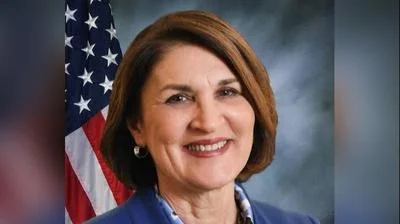Medicaid managed care expenditures are expected to climb near $11 billion in state and federal costs over a yearlong period. | File photo
Medicaid managed care expenditures are expected to climb near $11 billion in state and federal costs over a yearlong period. | File photo
Gov. Bruce Rauner is aggressively pushing a plan that could mean major changes to the way most of Illinois' poorest residents receive their health care.
Rauner has outlined a plan he insists will save taxpayers money while still providing the same level of assurances for many of the most vulnerable.
According to the Chicago Tribune, of the roughly 3 million area residents are now on managed care plans, and about two-thirds use the state and federally funded Medicaid program in which private insurers provide benefits to all eligible enrolees.
Speaking at Mt. Sinai Hospital, Rauner unveiled a plan he vowed will expand Medicare managed care programs to at least 80 percent of all residents across the state who are now enrolled in the system, including minors under the care of the Department of Children and Family Services.
Rauner also noted his plan focuses more on coordinating care for patients and on rewarding doctors and hospitals for what works as opposed to just the range of services they offer.
"We've done managed care in Illinois but like a lot of things we've done in state government, it's kind of in name only," he said.
The new plan also seeks to slash the number of eligible Medicaid insurers nearly in half, from 12 to seven operators at a savings projected to be in the millions of dollars.
Medicaid managed care expenditures are expected to climb near $11 billion in state and federal costs over a yearlong period ending this summer. While Rauner declined to speculate on how much could be saved by his new plan, the Illinois Association of Medicaid Health Plans began reviewing requests for proposals following his announcement. In times past, insurers bid for specific types of patients in managed care, such as those who have disabilities, but now they'll have to pitch themselves as a one-size-fits-all insurer.
"We can leapfrog ahead," said Rauner, seemingly well aware that some estimates have suggested the state can significantly trim from its $21 billion health insurance program through the proposed implementations.
As it is, Medicaid costs remain one of the most expensive drivers of the state’s overall budget deficit.
"There remains so much work to be done," Felicia Norwood, director of the state health care and family services department, said. "To truly succeed, there must be … a system that rewards quality and measures outcome. Unfortunately, there remain too many obstacles and limitations in our current managed care framework."
Added Rauner, "there's clearly significant savings to be had" by increasing quality and focusing on prevention.
Meanwhile, the governor also finds himself locked in a 19-month stalemate in which the government has been forced to operate without a budget.
Senate President John Cullerton (D-Chicago) and Minority Leader Christine Radogno have led negotiations on a proposed Grand Bargain that would include a mix of tax hikes, property tax freezes and reforms to the state’s pensions and worker’s compensation programs.
During his Feb. 15 budget address for 2017, Rauner signaled that he could be open to accepting at least some of the plan’s proposals.






 Alerts Sign-up
Alerts Sign-up